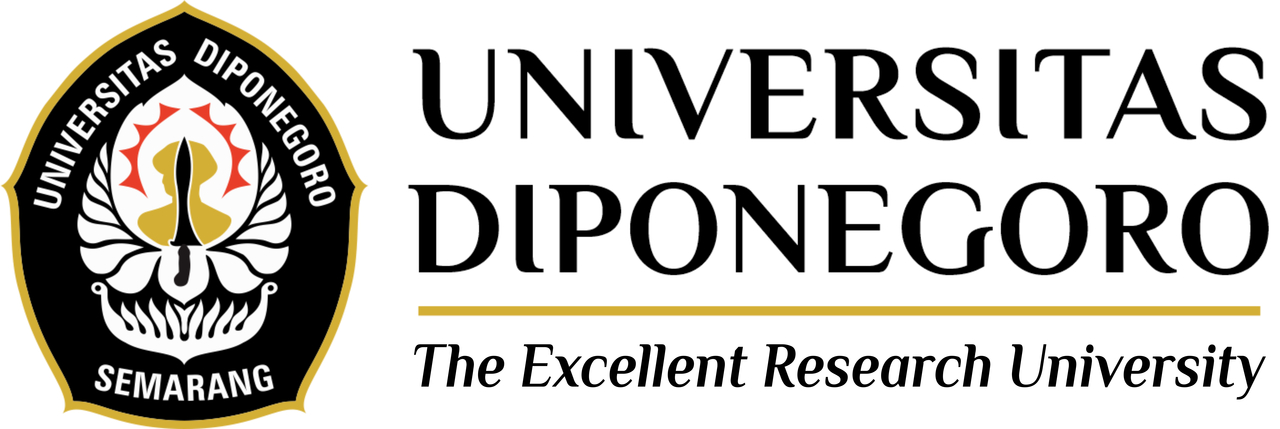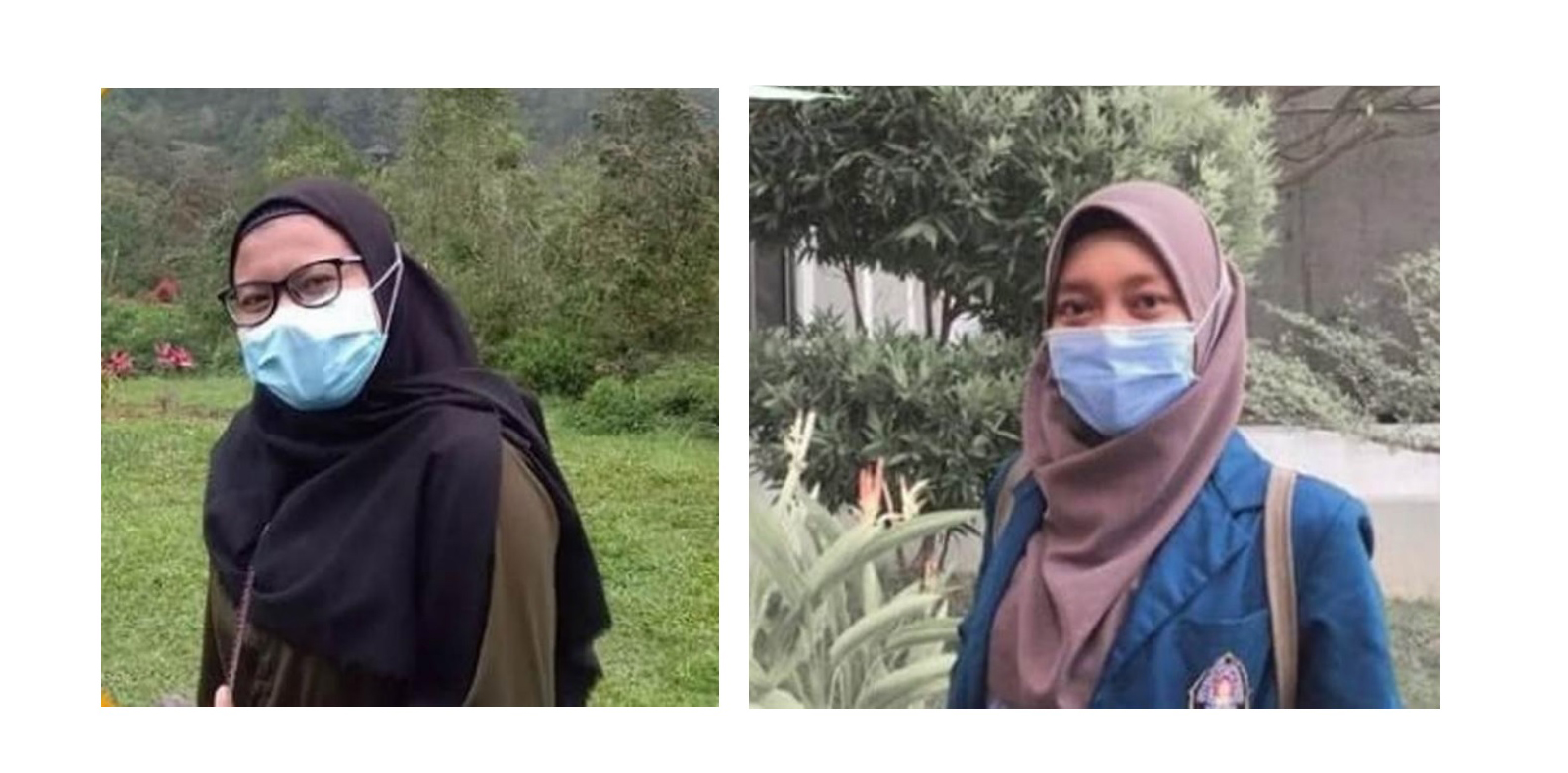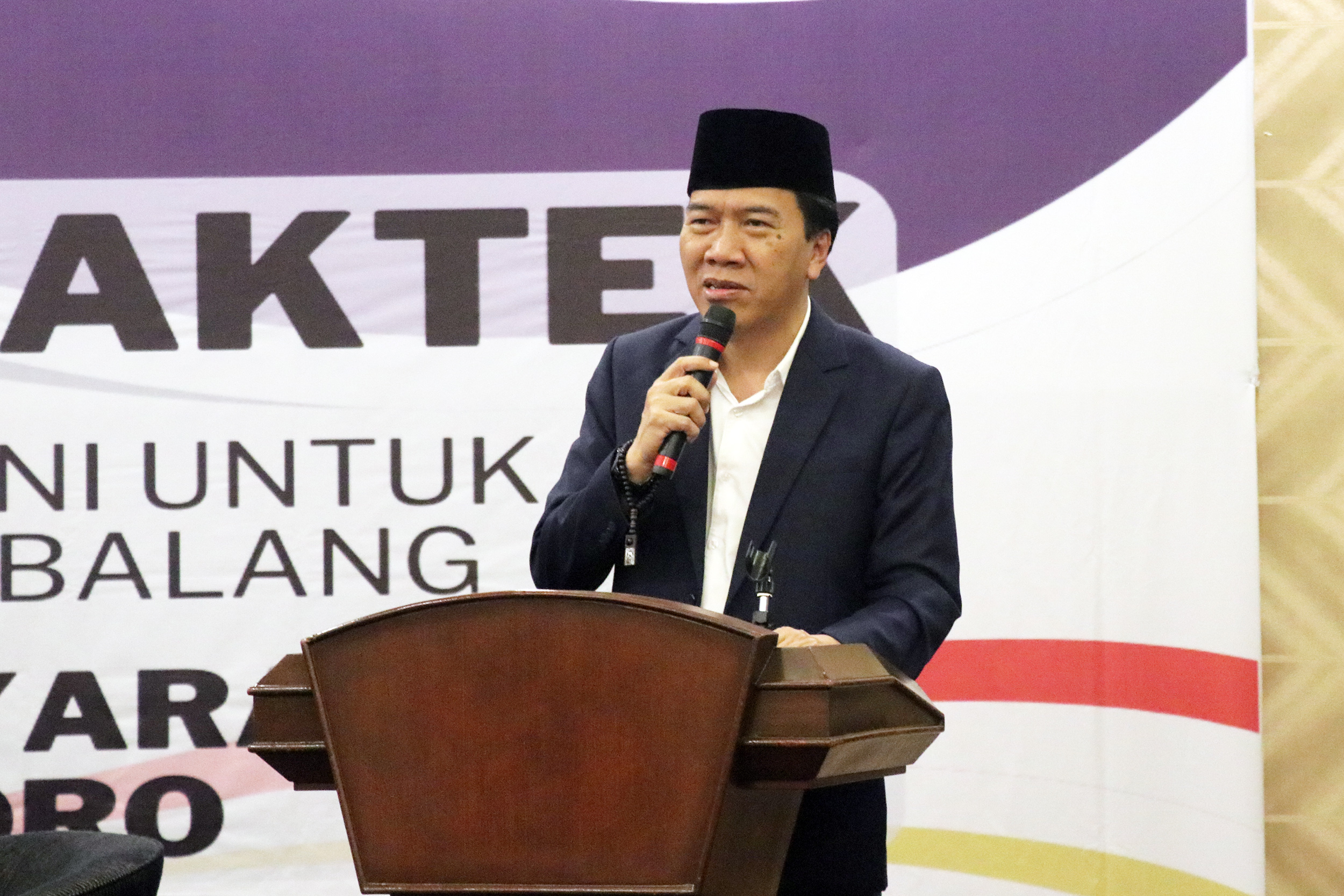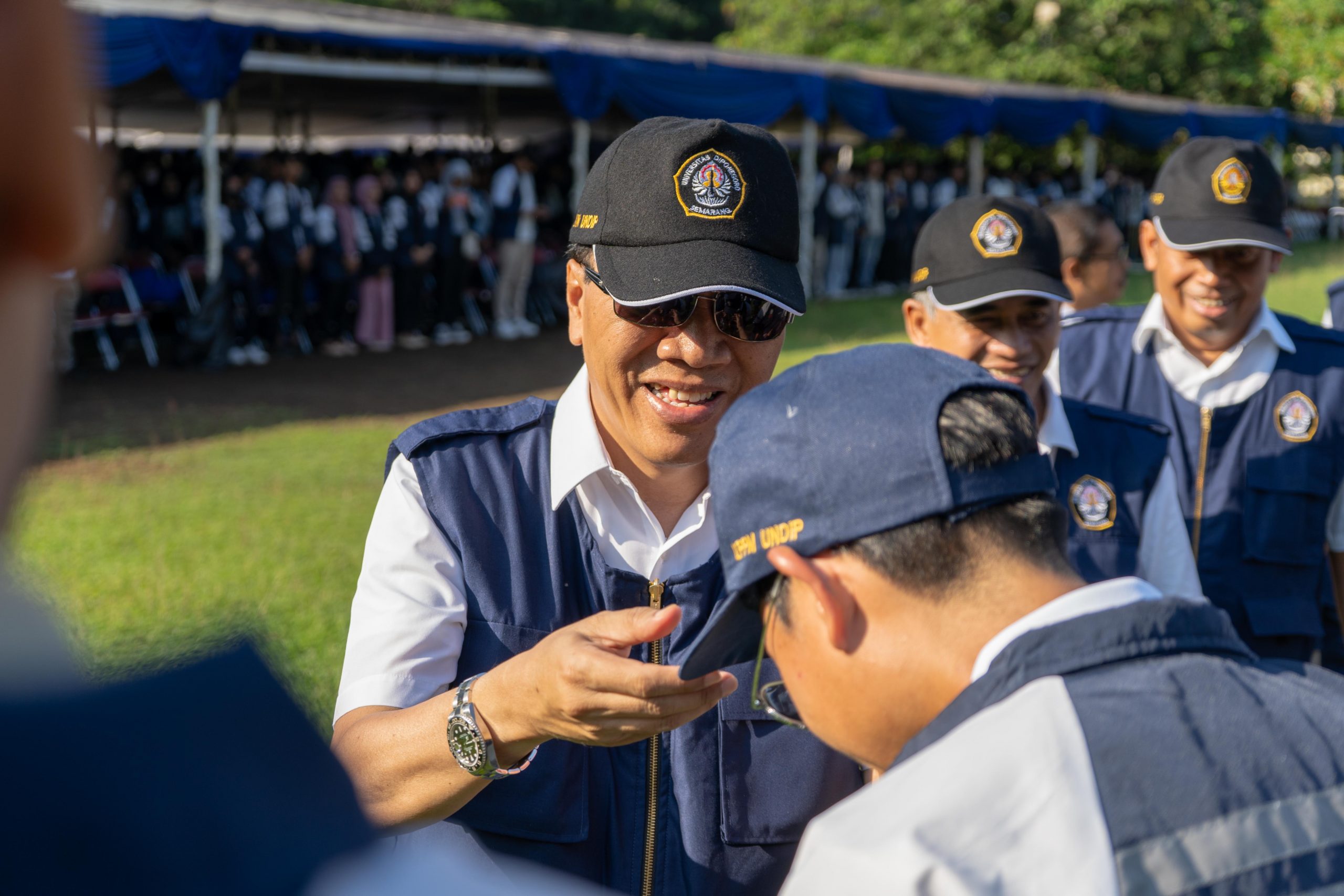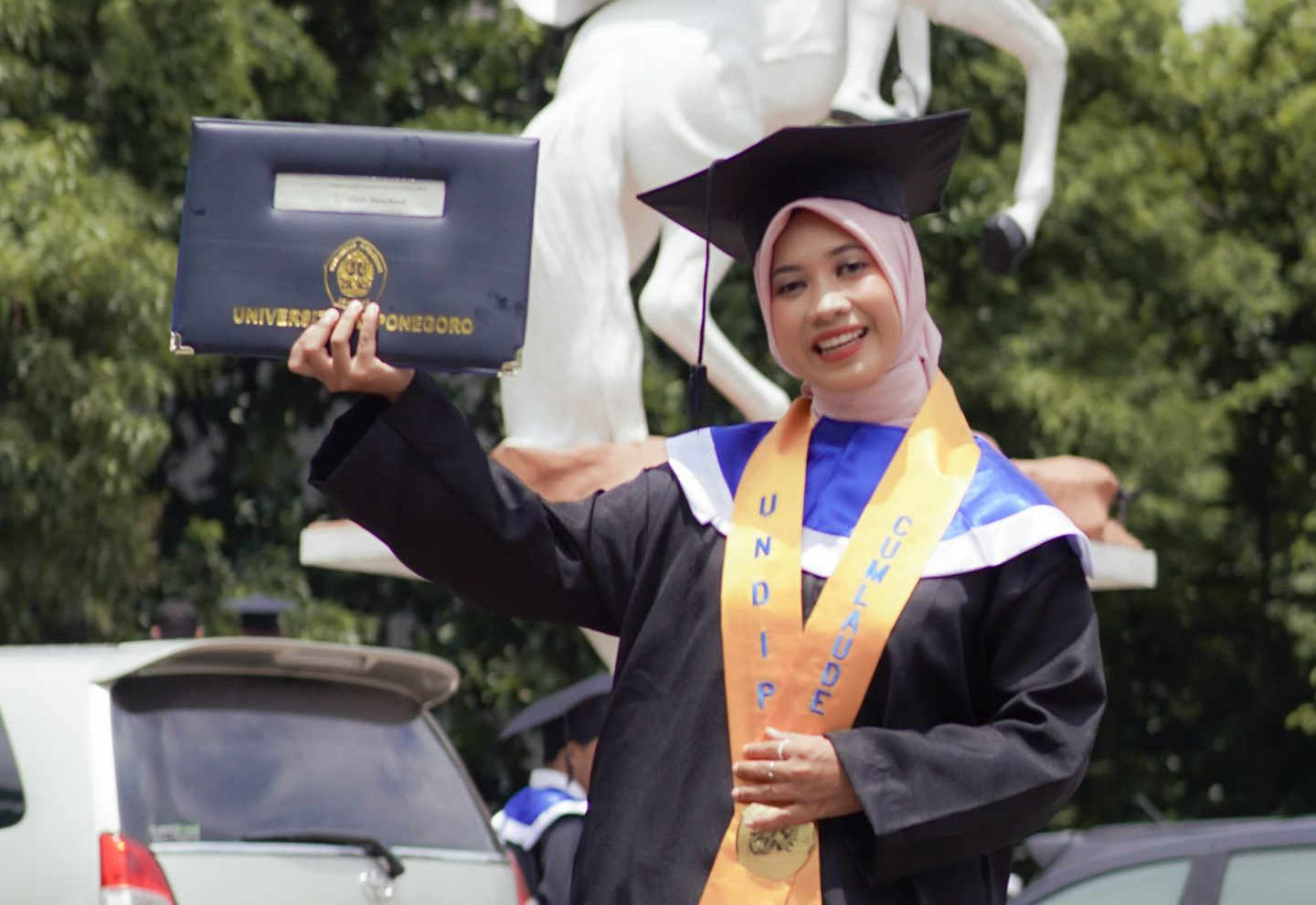SEMARANG – Ilma Zulfa and Maydi Hanivirgine, the students of Indonesian Literature Undergraduate Study Program of Faculty of Humanities (FIB) of Diponegoro University (UNDIP), won first place in the IT-Venture Competition of 2021 Information and Technology Week (PING) in the IT field – National Level S1/D3 Paper organized by the Informatics Student Association (Himaster) of Sebelas Maret University (UNS) recently.
This team raised the theme “Tepekota (Vocabulary Enrichment Therapy): Utilization of Applications for Interaction Spaces for Language Disorders in People with Aphasia”. According to Ilma, the background for choosing this theme is to help communicate with Aphasia sufferers, who are having problems.
Aphasia is a neurological disease caused by the blockage of blood flow to the brain and attacks the communication brain network (language disorder). People with aphasia have problems with speech, reading, writing, and arithmetic.
The cause of aphasia is brain injury, in most cases aphasia is caused by cerebral hemorrhage. Some things such as accidents can also be the cause of aphasia, apart from tumors and strokes.
In Indonesia, there are 550,000 stroke patients every year, and as many as 82.37% or 453 stroke patients suffer from speech disorders. This certainly needs serious attention considering that communication is an important need for humans. A good communication process will be achieved by using language as a communication tool. However, if there is a language disorder, of course the communication process cannot run smoothly.
Language disorders are usually associated with disturbances in the human brain. If the brain is disturbed, then the function of the nerves in the speech apparatus cannot work properly. This happens to people with aphasia. “So language learning media is very necessary for people with aphasia,” Ilma Zulfa emphasized.
Regarding the Tepekota application designed by Ilma and Maydi, is an application dedicated to helping people with language disorders, especially for people with aphasia. Those who suffer from aphasia can understand language well but have difficulty putting sentences together so they need assistive devices.
The Tepekota application designed by Undip students is believed to be able to help people with aphasia. The application is completed with three main features, namely material related to aphasia, games, and application info. With Tepekota, people with aphasia can practice their language skills slowly.
This application is equipped with four basic learning models, namely reading, listening, speaking, and writing. The development guide uses neurolinguistics analysis and SWOT as well as risk management for the Tepekota application. “In essence, the Tepekota application is an innovation that is used to help people with aphasia in improving their communication skills,” they explained.
It is hoped that through this application people with language disorders can increase their vocabulary with a very light model with the material which is easy to understand. A person with aphasia will easily remember with the help of audio-visual.
The basics of communication, namely reading, listening, speaking, and writing are made to be friendly with the condition of people with aphasia. The game in this application is composed of several levels, where the first level begins with the material of the Alphabet letters.
The creators of the Tepekota application are optimistic that their work is quite effective in helping people with aphasia to recover their communication skills, because this application covers the entirety of therapy. In cognitive linguistic therapy, emphasis is placed on the emotional component of language. Patients of aphasia are also given a stimulus program in therapy using a variety of sensory modalities, including pictures and music.
There is also a feature named Stimulation-Facilitation Therapy, a type of therapy for people with aphasia that focuses more on the semantics (meaning) and syntax (sentence) of language. Meanwhile group therapy will help patients learn to communicate in a social context to practice the communication skills they have learned during private sessions.
One of the basics of this program is PACE (Promoting Aphasic’s Communicative Effectiveness) as one of the most popular forms of pragmatic therapy. This type of therapy aims to improve communication skills by using conversation as an instrument.
The creators also provide a Melody Intonation Therapy program considering that this method can help patients with very poor verbal output caused by left hemisphere abnormalities, while the right hemisphere is still intact. “It can help the brain work in language processing in people with aphasia.”
Meanwhile, the Head of Indonesian Literature Study Program of Faculty of Humanities Undip, Dr. Sukardjo Waluyo, S.S., M.Hum, when contacted on Thursday (6/1/2022), said that the students’ work went through a tough process, and was made with planning and hard work with the guidance of lecturers who were selected according to their competence and expertise. The announcement as the winner of the competition is a form of acknowledgment that this innovation has benefits for the community.
“We continue to map the potential of students by conducting training and providing assistance so that more works can be produced. I see the potential of our students and they will improve well in the future. We are open to collaborating with other parties from different fields of knowledge so that the work produced will be excellent and beneficial for all of us,” he explained. (PR team)
